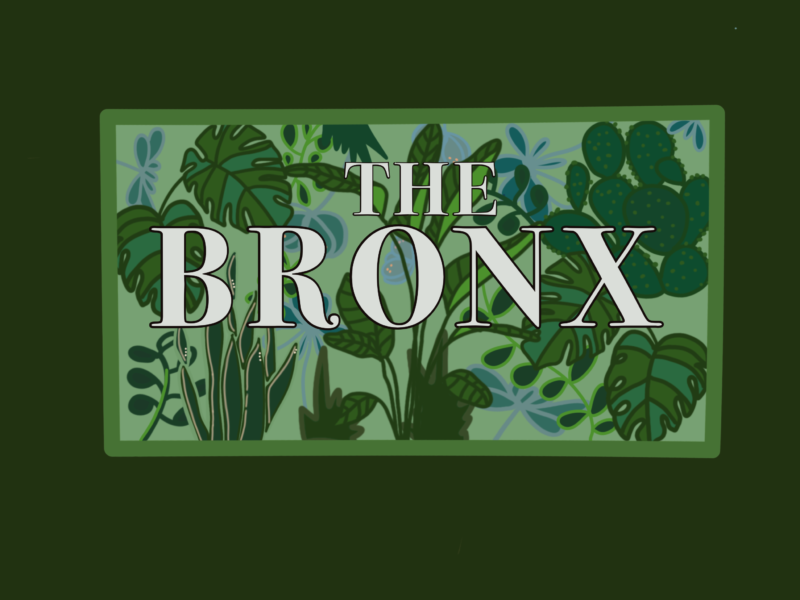Soy Afro-Latina: Exhibit I
For most of my life, I felt like I didn’t belong in a specific ethnic or racial group. I was seen as either black or Dominican, as if I couldn’t be both; I was either Lu, the black kid, or Lu, the Dominican girl. It seemed inconceivable to my peers and my family that I could somehow belong to both groups.
Something changed last year, when it suddenly occurred to me that I could have both- that I was both. I was no more black than I was Dominican. I no longer had to choose, and the worst of my identity crisis was over. I didn’t realize that the worst was yet to come; coming to terms with my afro-latinx heritage meant receiving criticism and confusion from those around me.
I am proud and confident in myself and my roots. But the journey continues, and this is it. These are only pieces of my experience, but I write them in the hope that other afro-latinxs find comfort, and realize that they do belong.
They do belong. You do belong.
Soy Afro-Latina: Exhibit I
I saw my father, a man who heavily opposes my radical, often fiery rhetoric, become angry. This is the power of culture, of recounting one’s origins.
We sat in our living room, watching a YouTube documentary on Haiti. The piece that began our passionate conversation was about Voodoo, a religion that has been heavily associated with Haiti. I mentioned that I would like to study Voodoo, from a historic and anthropological perspective. The religion fascinated me; the songs and rituals seemed rich and powerful- even from the TV screen.
This statement began a conversation on sincretismo, lead by my father. This mix of the Catholic faith with a native religion or belief system was something he studied and wrote about extensively in his youth. This surprised me. My father, an extremely Catholic man, writing about native, often polytheistic religions? Writing respectfully, even admirably, about these religions?
He continued to surprise me, as the conversation progressed.
“I respect(ed) sincretismo. It shows the strength of my people and their will to live. It demonstrates resistance. The slaves, our ancestors, resisted. The Spanish came and took over, tried to force Catholicism on them. They took their African roots, then, and integrated the Spaniard’s attempts to evangelize into their already established faiths. They made something beautiful.”
“You can’t force your white God unto others… they believed in the trees and the sun, but they weren’t hurting anyone. Yet the ones who came in the name of God took over and killed in his name. People used to condemn my respect for this, calling it brujeria… but what’s so bad about strength?”
And so I asked more about our ancestors, and our origins.
“Tell me more about los Palos!”
This is a form of sacred afro-Dominican music that features chanting, singing, and hard drum beats. It’s roots are in Africa, and it is often played at celebrations of saints or to recognize death. This music, our music, was a form of resistance.
My father got up and started dancing around, a distinct kind of fire in his eyes; this was the kind of movement and fire that signified pride, that showed my stubborn father’s love for our roots.
We come from a people who were chained and enslaved, but who managed to develop their culture, resist change, and hand down their traditions generation to generation. This is the first angle from which I analyze being afro-latina. This is a multifaceted identity that I have been forced to dissect. I have looked at it from a personal perspective, a historic and cultural perspective, and from the eyes of several other afro-latinxs, from many different countries.
I am only a fraction, merely a crumb, of the beauty that my background holds. My roots are strong and fierce, and as my father so passionately called them, resistant.
*The opinions and ideas expressed are solely those of the author, and do not reflect the opinions of The Bronx Brand*
Lu Perez is from the Eastchester section of the Bronx but currently resides in the Fordham area. Being Latina and growing up in a predominantly Hispanic/Latinx community in the Bronx has been a great influence in the way she writes. Her appreciation for her Dominican heritage comes through in Lu’s work. From the slang, the open fire hydrants during the summer, the sticky streets and booming music have become pieces in the puzzle that forms Lu’s identity; these are the experiences that have had a profound effect on the way Lu perceives the rest of New York, and the world.
Be sure to follow her on instagram: instagram.com/afro.latinaa



